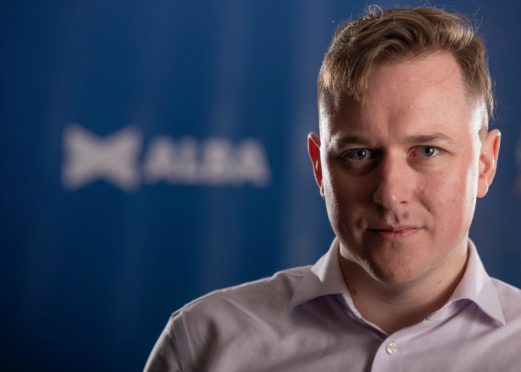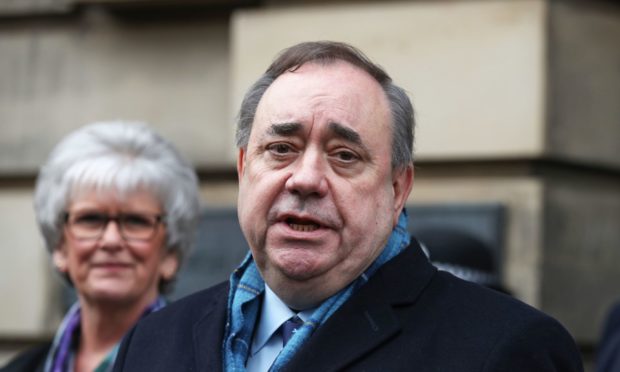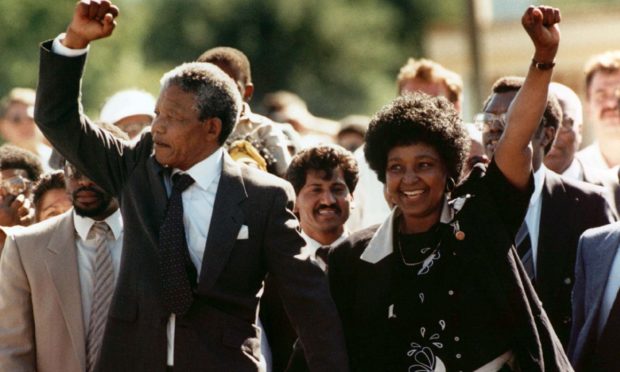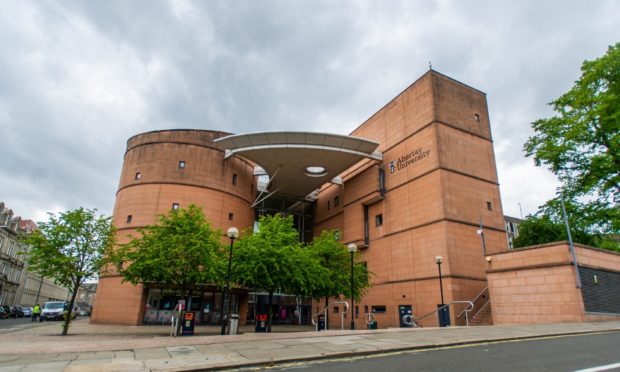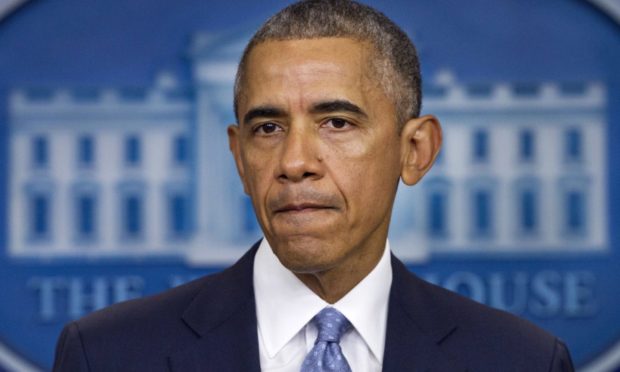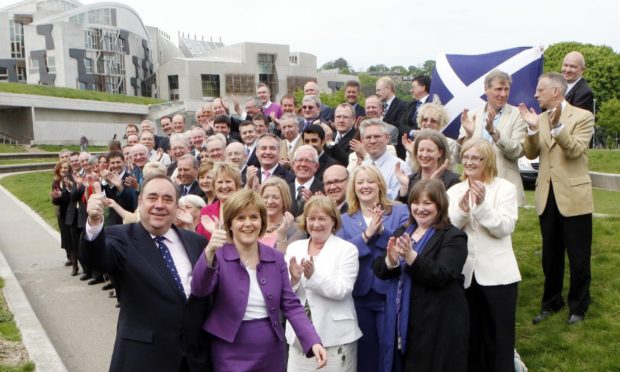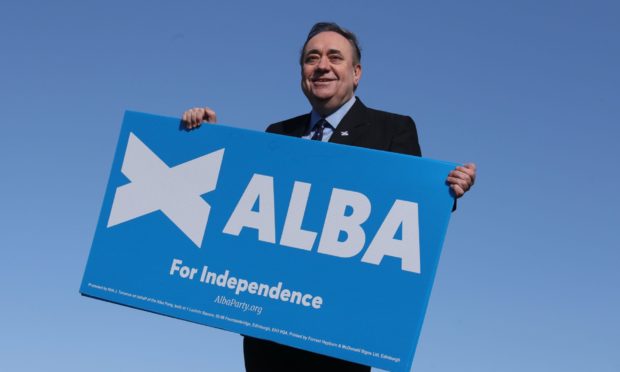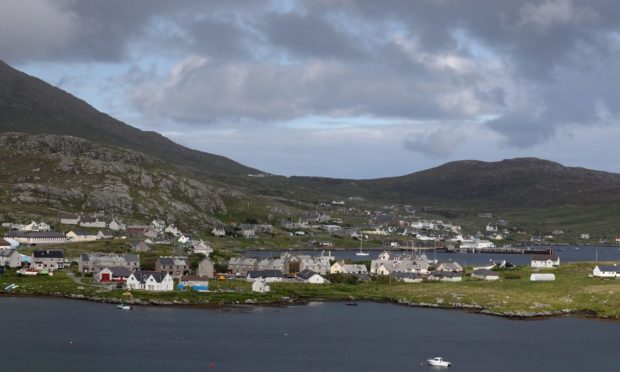The Cambridge Analytica scandal rekindled a partnership that transformed Scottish politics in 2011 and could now do so again a decade later.
Kirk Torrance, a key figure behind the scenes during the SNP’s landslide victory 10 years ago, has revealed how he turned to his old boss, Alex Salmond, for advice when he found himself embroiled in the controversy surrounding the data-harvesting firm in 2018.
Under pressure from rivals at Holyrood, Nicola Sturgeon had refused to name the party contractor who met representatives of Cambridge Analytica (CA), which was accused of using information from Facebook to help Donald Trump and the pro-Brexit campaign.
But Mr Torrance, who is now the lead Alba Party candidate in the Highlands and Islands region at the Holyrood election next month, was later identified as the SNP’s representative at those talks in 2016.
He said at the time that he had reported back to SNP HQ that CA was “a bunch of snake oil-selling cowboys”, but he still sought out Mr Salmond during the turbulent period.
“I called Alex for some advice on the whole thing, when people were trying to make me seem like I was bad or had done something wrong,” he said.
“The SNP were trying to keep my name out of it, which was quite nice of them to try and do that, as an independent contractor or whatever.
“But eventually it all got leaked out and so did all my emails, and I was basically saying ‘stay away from these guys, they are a bunch of cowboys’.
“But I called Alex at the time, just to get his advice on it – ‘what do you think, how is it going to play out?’ – because it was a bit uncomfortable having all these people presuming things and all that.”
He was very helpful and we ended up having dinner in London and he asked me what I was up to.”
The contact with Mr Salmond proved fruitful in more than one way for Mr Torrance, who was setting up his own technology company at the time, in 2018.
“He was very helpful and we ended up having dinner in London and he asked me what I was up to,” he said.
“I had just put together a product to help protect people’s privacy on the internet, and I showed him it.
“He liked it, and said, ‘that looks very interesting, would you like any investment?’
“So that is how that started. We started a company.”
The company, Mount Schiehallion Ltd, was incorporated in July 2018, but then, the following month, it emerged that the former first minister had been accused of sexual harassment.
“There was a very successful product development phase, and then we just kind of went into the whole unpleasant business with these accusations being levelled against him,” said Mr Torrance.
“Obviously he had to focus on all of that, and it was a difficult period.”
Mr Torrance was reluctant to be drawn on the allegations against Mr Salmond, insisting the Alba Party was running a “positive campaign”, motivated by the “future of this country”, and that it did not want to be “reliving such things”.
But he later said: “I think a lot of what has been said is exaggerated and not actually accurate as to what happened, in terms of Chinese whispers.
“What sort of society do we want to live in here, where people can cast aspersions on somebody?
“They can go to the two highest courts in the land and be found to be innocent. The other people found to be in breach of the law, tainted by apparent bias.
“And yet people continue to cast aspersions. It’s just not acceptable.”
It has not ever been an ambition, I have to admit. I’m doing this out of what I feel is a necessity.”
Since the controversy over Mr Salmond erupted, their business was “restructured” and is on the “back-burner at the moment”, while the pair attempt to create a new political party from scratch.
Mr Torrance said their involvement in the Alba Party had “all happened very quickly”.
Asked whether they had been planning their bid for a Holyrood “super-majority” for a long time, he laughed.
“No, no. I’m not sure Alex was even interested in coming back. I’m not sure what his thoughts are on the whole thing, but I think it was very recently Alex decided to do anything,” he said.
“I think he has told me he was getting courted by all the various different list parties, including Laurie Flynn, who set up Alba.
“Then a decision was made and it was all hands on deck, really, trying to get this thing ready.”
Despite all his success in politics behind the scenes, the 40-year-old admitted he had never held any desire to stand for election himself.
“It has not ever been an ambition, I have to admit. I’m doing this out of what I feel is a necessity. There are dark clouds on the horizon and we have an opportunity,” he said.
“There’s no such thing as the status quo. People in 2014, when they were voting for independence or not, they said, ‘we’ll stick with the status quo’. Well, the status quo is now over.
“There’s only two realities ahead of us, and we either have to choose whether we go into tough times with the powers of an independent state, looking after our own affairs, taking responsibility for ourselves, or relying on our nearest neighbour to look after us.
“I think that’s the thing that’s driving me. Difficult times require people to change course and do things that they think are necessary, and that’s the reason I’ve stood for this election.”
KwaZulu-Natal to Keith
Over his four decades, which have taken him from KwaZulu-Natal to Keith, Mr Torrance has had to “change course” quickly and often.
Born in Paisley, Mr Torrance was one year old when his young parents followed his shipbuilding maternal grandfather in a move to South Africa for a job, after another opportunity in Canada fell through.
“It was during Apartheid but KwaZulu-Natal was a progressive part, you could say, of South Africa, as opposed to the north,” he said.
“My parents were in the anti-Apartheid movement, so politics has been an important factor in my life for quite some time.
“I remember all of that. I remember Mandela being released from prison, and then he was under house arrest, of course, for some time.
“I was about nine or 10. I remember my dad used to tune into Radio Moscow to get the real news.
“We had a huge aerial in a tree house because they used to broadcast Radio Moscow from Zimbabwe, it was long wave, and would travel across a humongous area.
“It’s a pretty fond memory, just sitting there listening to that.
“And my grandfather, my dad’s dad, would send The Scotsman once a week.
“So it would always be arriving a week late but it was an interesting connection to keep in touch with the homeland.”
The reputation of Russian media is not what it used to be, as Mr Torrance’s future business partner has found out since launching a controversial programme on Kremlin-backed RT.
With his mother having been a butcher’s assistant and his father a Glasgow postman, his parents studied at college to become “titans of the computer industry in South Africa”, before the family returned to the UK, with Mr Torrance sitting his A Levels at a school in Hertfordshire.
Abertay University
The move was “a bit of a shock”, but Mr Torrance felt more comfortable after relocating to Dundee to study internet and communications technology at Abertay University.
“I’ve always felt most at home in Scotland, I have to say,” he said.
“Probably because in Durban there was a large Scottish ex-pat community who used to meet up every weekend, barbecues and that kind of stuff, all around the docks, the ship-building industry and all that kind of stuff.”
He added: “Dundee was a wonderful experience. I love Dundee. It’s a second home. I loved the whole experience of being at university in the city.
“It was when I got to Dundee I became political. I remember I was in the first crop of students that had pay tuition fees.
“It was 2000 and our group who finished A Levels were the first that had to pay tuition fees.
“I remember that being a big thing, we went on marches and all sorts of different things, down to London.
The Iraq war was a huge factor. I remember being on the marches for that in Glasgow…”
“And then Scottish politics was obviously a factor. I think 2003, that election, was when I first actually became interested in Scottish politics.
“The Iraq war was a huge factor. I remember being on the marches for that in Glasgow, and John Swinney was the leader (of the SNP) at the time, and it was just so frustrating, what was going on.”
Mr Torrance had already been sympathetic to the SNP cause, with his father a long-standing member who signed up his son while he was just 12 and attending boarding school in South Africa.
He became more engaged in Dundee, but after university he settled in London and began working for a start-up called Sohonet, which was effectively building a private internet connecting all the city’s film and television studios.
Mr Torrance “did very well” with the sales and marketing aspect of the job, and would soon find himself travelling back and forth between London and Los Angeles, where the business was expanding.
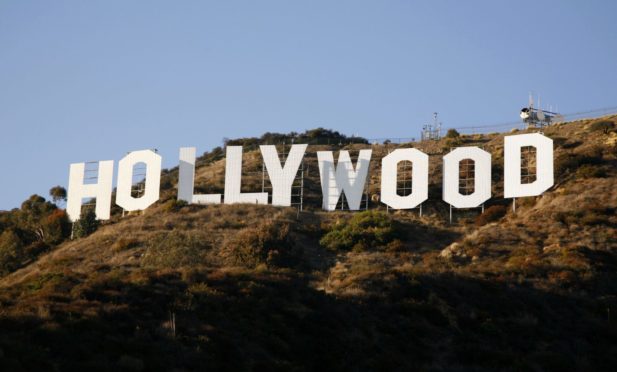
His life “changed course” again when he picked up a copy of the LA Times one day in May 2007.
“I was actually sitting in a bar in Los Angeles in 2007 when I read about the SNP winning, and that kind of changed everything for me,” he said.
“It was the Los Angeles Times I was reading. I was drinking on the beach, really, and enjoying life one Saturday.
“In the LA Times, it was a little tiny story saying ‘Scottish nationalists win’, and I was like, ‘what?’
“I remember thinking to myself, ‘well, maybe our ambition will start to match our talents as a country’.
I was actually sitting in a bar in Los Angeles in 2007 when I read about the SNP winning, and that kind of changed everything for me.”
“And I kind of entertained the idea, well, maybe I could go back with all this experience that I have, and make something of Scotland.
“Anyway, I carried on, I think I went surfing later that day, and I forgot about it. But a few months later, things started fomenting in my that I would go back to Scotland.”
Mr Torrance made the switch in late summer of 2008, just a few months before the financial crisis and bank bail-outs crippled the economy.
“I arrived in Scotland thinking I was going to walk into a job and the total opposite happened. Nobody was hiring, nobody was investing, it was a terrible time,” he said.
Without full-time employment, he started becoming “much more involved” with the SNP, including at the Glasgow North East by-election in 2009.
Shocked by the hostility he found on the doorsteps of many traditional Labour supporters, Mr Torrance, along with his brother and a friend, came up with the idea of setting up a neutral pro-independence organisation, called The Wee Folk Foundation.
“We thought if we did some sort of organisation like that, it could be some kind of neutral space for people to talk about independence without feeling like they were going against long-standing family obligations, or whatever,” he said.
They took the idea to the SNP, and party chiefs loved the document they had put together, and offered Mr Torrance a job as the party’s new media strategist.
It was a crucial appointment for the party, with Mr Torrance having been studying Barack Obama’s 2008 election-winning campaign in the US, and the grassroots organisation model taught by Harvard University’s Marshall Ganz.
They used the 2010 Westminster election as a “training ground for what we could see would work and what didn’t work”.
SNP landslide
That experimentation came to fruition the following year, when the SNP won a majority in a an electoral system designed to prevent one, paving the way for a historic independence referendum in the process.
“We had no budget, I remember that being a major factor,” said Mr Torrance of the 2011 campaign.
“What we did was, we spent a lot of time training people up on actually how to use Facebook and Twitter, and this was kind of like trying to get people to use email in the late 1990s.
“It was very difficult, but once they got a hold of it… and this was a time when iPhones were coming into their own with a nice camera at the back of it.”
We were training people how to use the camera on their phone and take nice pictures and then we’ll stick the SNP logo on it.”
Mr Torrance told the candidates that they were working all these hours but nobody knew about it except the politician and the person they were helping.
“It was high-visibility campaigning. We were training people how to use the camera on their phone and take nice pictures and then we’ll stick the SNP logo on it,” he said.
“So if you had a candidate knocking on a door, speaking to Mrs McGrew in Nairn or somewhere, you have someone in the team taking a picture of you – say Alex Salmond was there shaking your hand.
“We’d stick that on Facebook. We’d take Mrs McGrew’s email address and send her a link to the picture online and she would decide whether or not she wanted to tag herself in that picture, and if she did then on average at the time people had 200 friends, so 200 people would see it.
“So you get this impression that, ‘oh, granny is voting SNP, that’s interesting’.
“It just surfaced the idea of all the latent SNP support. It gives them the opportunity to surface and be public about that, to stand up and be counted, if you will.”
The SNP’s victorious campaign was considered way ahead of its time and light years ahead of the efforts of the party’s rivals.
Mr Torrance began to get “a lot of attention” after the election, including job offers.
He opted to set up his own company and keep the SNP as a client, although he was called back into full-time campaigning in the run-up to the referendum.
“I think it was around about December 2013, or January 2014, when I got asked to come back into the independence referendum, because things weren’t going as well as they had hoped,” he said.
“I came back and I went full-time on that to help remedy what was going wrong, and getting things in shape for the nine-month campaign from January to September.
“That was quite successful. We were on about 24-25% when I got involved, and ended up at 55% for Yes a week-and-a-half out.
“It was The Vow that changed everything, it was very disappointing, the whole situation.
“If we had another week we would have won it, because the lies would have been exposed within that timeframe.”
Mr Torrance stopped working with the SNP after the 2016 election campaign, although he said he had remained “friendly” with Ms Sturgeon and Peter Murrell.
Alba Party
He is now using the same NationBuilder software he used to great success with the SNP in 2011 to try to send fresh shockwaves through Scottish politics, with a different party.
“There’s a hell of a lot of work on the back end for making a political party happen that people are not very aware of,” he said.
The launch of the Alba Party has not been without its issues, including an alleged website hacking that attempted to identify the names of some of its supporters.
“I don’t want to talk about that because that is a matter for the police at the moment,” said Mr Torrance.
As well as playing a pivotal role in trying to establish the Alba Party as a parliamentary force, he is also put his name forward as a candidate.
“It was offered to me to be a candidate, and I thought about that and, yeah, I live in the Highlands, I love the Highlands and I don’t think the Highlands are getting enough attention, certainly not from London but even Edinburgh,” he said.
Mr Torrance has had a home in the countryside near Keith since 2013 and been there more permanently since 2018.
He feared that the region was facing an “economic tsunami” from Brexit and the recovery from the pandemic.
“The Highlands has its unique challenges and unique needs and I think the upcoming issues that are about to hit us, we need to very clever about what we do to try and mitigate what is going to happen, not least depopulation in large parts of the Highlands and Islands,” he said.
“You have problems in Shetland; for instance, at Sumburgh Airport where very high-paid jobs in air traffic control are about to be shipped to Inverness.
“You have the fishing industry pretty much on its knees as a result of Brexit.
“So a post-Covid recovery is going to be absolutely necessary, getting jobs, reindustrialising the area, and I think that is what we’re able to offer here – some sensible thoughts and planning, and then also holding the SNP to account to make sure these things are actually carried through.”
He believes he has a “very good chance” of being elected in the region, saying: “The mathematics are clear, it’s a simple argument and it’s getting through to people”.
Some of his former colleagues in the SNP might dismiss the Alba Party as little more than “a bunch of snake oil-selling cowboys”, like he did of Cambridge Analytica.
But Mr Torrance has proved the doubters wrong in the past.
